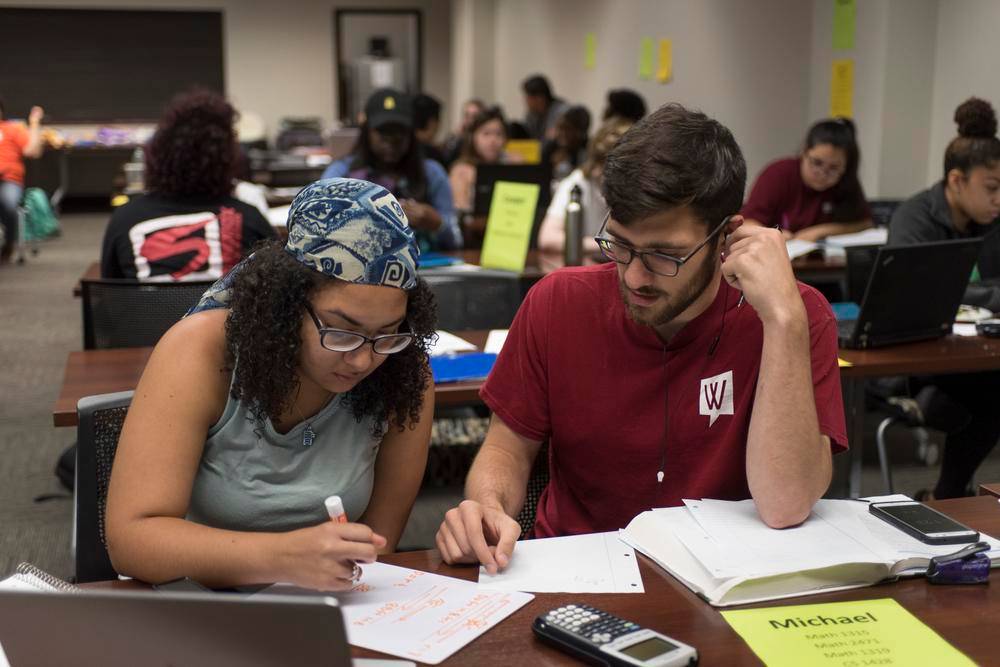National Survey of Student Engagement provides snapshot for moving forward
Sandy Pantlik | February 5, 2019

Texas State University students report higher levels of interaction with faculty, reflective and integrated learning, discussions with diverse classmates, and a more supportive environment than an average of their peers at other Emerging Research Universities (ERUs) in the state.
Texas State released results from the 2018 National Survey of Student Engagement (NSSE) which measures undergraduate student participation in programs and activities that promote learning and personal development at their respective universities. NSSE collects data from first-year and senior students via email every spring and uses the results to measure levels of institutional effectiveness.
ERUs included in Texas State’s comparative class are University of Texas-Dallas, University of Texas-San Antonio, Texas Tech University, University of Houston, University of Texas-Arlington and University of Texas-El Paso.
Texas State Senior Research Analyst Susan Thompson helps administer the survey and works to integrate the results into institutional practices. “Through NSSE, we get a snapshot that guides discussion about our institutional practices and learning environment to see what is working and where we can improve,” Thompson said. “It tells us more about students’ experiences in our courses and programs compared to other institutions in our group.”
Among the findings:
- Eighty-five percent of first-year and senior students positively rated their educational experience at Texas State, compared to an average of 81 percent of their Texas ERU peers.
- Sixty-three percent of Texas State seniors reported they experienced the opportunity to connect their learning to social and societal issues, compared to an average of 53 percent of their Texas ERU peers. First-year students rated this category 56 percent compared to 45 percent for their ERU peers.
- Seventy-four percent of Texas State seniors reported they combined ideas and concepts across courses to complete assignments, compared to an average of 63 percent of seniors at other Texas ERUs. First-year students rated this quality at 55 percent compared to a 46 percent average for their ERU peers.
- Thirty-four percent of Texas State seniors said they talked about course ideas with faculty outside of class, compared to an average of 26 percent of their Texas ERU peers.
- Seventy percent of first-year students felt their experiences at Texas State helped them understand people from other backgrounds, compared to an average of 62 percent for their Texas ERU peers.
Compared to students at the ERU peer institutions, first-year students at Texas State ranked including diverse perspectives in course discussion and assignments as the highest area of engagement, 15 percentage points above their ERU peers. Both first-year and senior students reported that they talked about their career plans with a faculty member more often when compared to other ERUs.
The research showed senior students at Texas State participated in two or more high impact practices at the rate of 53 percent, 10 percentage points higher than seniors at other Texas ERUs. High impact practices include service learning, research with faculty, internships, study abroad, the quality of the learning community and the culmination of the senior experience – all practices that have been identified through research as enhancing the educational experience. Texas State seniors also reported significantly higher engagement through collaborative learning, effective teaching practices and the quality of interactions in the campus environment than did students enrolled at other Texas ERUs.
Share this article
For more information, contact University Communications:Jayme Blaschke, 512-245-2555 Sandy Pantlik, 512-245-2922 |